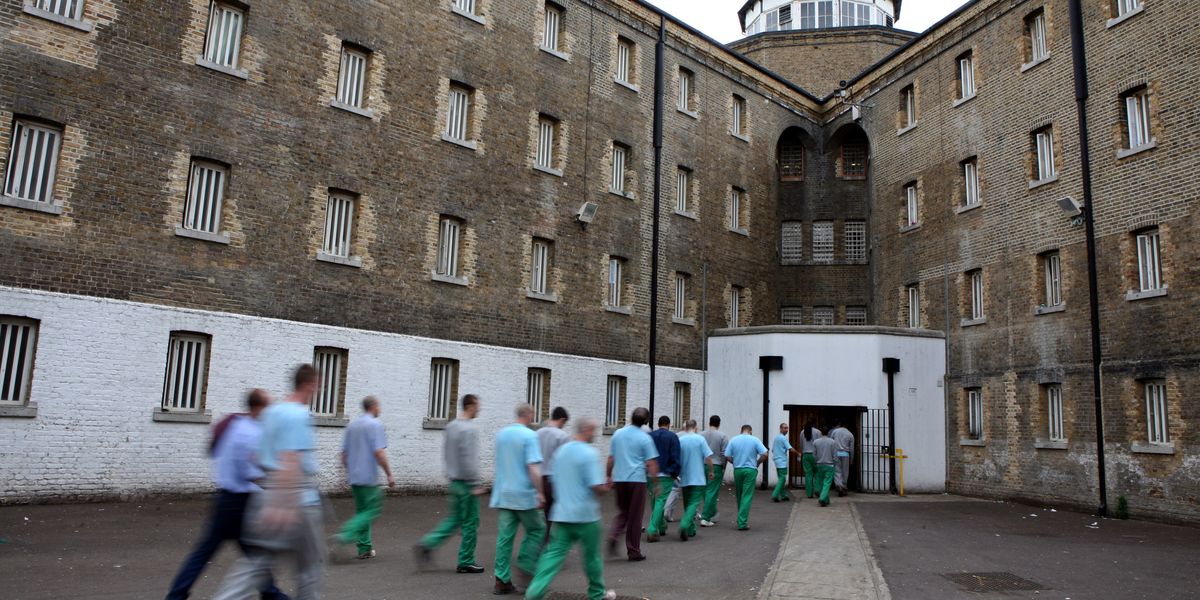Prisoners to be used to fill Britain’s labour shortages as thousands of ex-convicts to be offered jobs

Ministers are set to unveil plans to tackle labour shortages by targeting tens of thousands of prisoners with enhanced job support and training programmes.
The initiative, part of the “Get Britain Working” white paper to be published on Tuesday, aims to transform employment prospects for inmates while addressing workforce gaps across various sectors.
Currently, less than a third of prison leavers secure employment within six months of release, while those serving non-custodial sentences have an employment rate below 50 per cent.
The Government plans to establish employment advisory boards within prisons to connect employers with ex-convicts.
Currently, less than a third of prison leavers secure employment within six months of release
Getty
Training programmes will be tailored to match local labour shortages in sectors such as construction and hospitality.
“If a local area is short of construction workers, we will target the local prisons with construction-related courses and training so that when they’re ready to be released, they’ll be more ready to fill those job shortages,” a Government source said.
Dedicated employment hubs will be created in prisons to assist inmates with job applications.
New partnerships between prison governors and business leaders will also be established.
MORE LIKE THIS:
Lord Timpson, the prisons minister, is spearheading efforts to increase ex-convict employment
GOV.UK
Lord Timpson, the prisons minister, is spearheading efforts to increase ex-convict employment, drawing from his own experience at Timpsons.
His shoe repair and key-cutting company employs hundreds of former prisoners, with 10 per cent of the workforce comprising individuals with criminal convictions.
He has actively encouraged other employers to consider hiring ex-convicts, emphasising their workplace value.
According to Lord Timpson, ex-prisoners often demonstrate higher levels of productivity, motivation, loyalty and work ethic compared to the general public.
Employment is a crucial factor in reducing reoffending, with Ministry of Justice data showing stark differences in outcomes.
Ex-prisoners who remain unemployed six weeks after release have a reoffending rate of 35 per cent, compared to just 16 per cent for those in work.

The Government plans to establish employment advisory boards within prisons to connect employers with ex-convicts
GETTY
“Having a steady job significantly reduces the likelihood of an offender committing further crimes. That is why we’re linking up more prison governors with business leaders to get more offenders into work,” a Government spokesperson said.
The initiative will particularly focus on prisoners with health problems and young offenders, who are considered most likely to benefit from these programmes.
The white paper will expand access to employment advisers for prisoners as part of broader welfare reforms.
The government aims to help an additional 140,000 people by 2029 through intensive employment support programmes.
Work and Pensions Secretary Liz Kendall emphasised the importance of these reforms, telling Times Radio: “I think that is a waste of people’s talents and their opportunities and it’s not good for the economy either, including the rising benefits bill.”
The initiative comes as official forecasts predict incapacity benefit claimants will rise from 2.5 million in 2019 to 4.19 million in 2029.
Related
Llyods Recruiting Engineers In India After Slashing Jobs In UK
Lloyds Banking Group is planning to hire hundreds of engineers in India as the company plans to shift its employment opportunit
Major new funding for music acts that supercharged careers of…
£1.6m Music Export Growth Scheme to support 58 independent UK artists to tour the world Funding will boost UK’s creative industries – a key growth se
Well-loved restaurant chain to close 8 venues across UK as…
A BELOVED restaurant chain has announced it will close eight venues across the UK, scrapping 158 jobs in the process.Owners are pointing the finger at Labour's
US adds 151,000 jobs in February as unemployment rate ticks…
The latest figures published by the US Bureau of Labor Statistics today (7 March) came in below market expectations, with economists polled by













